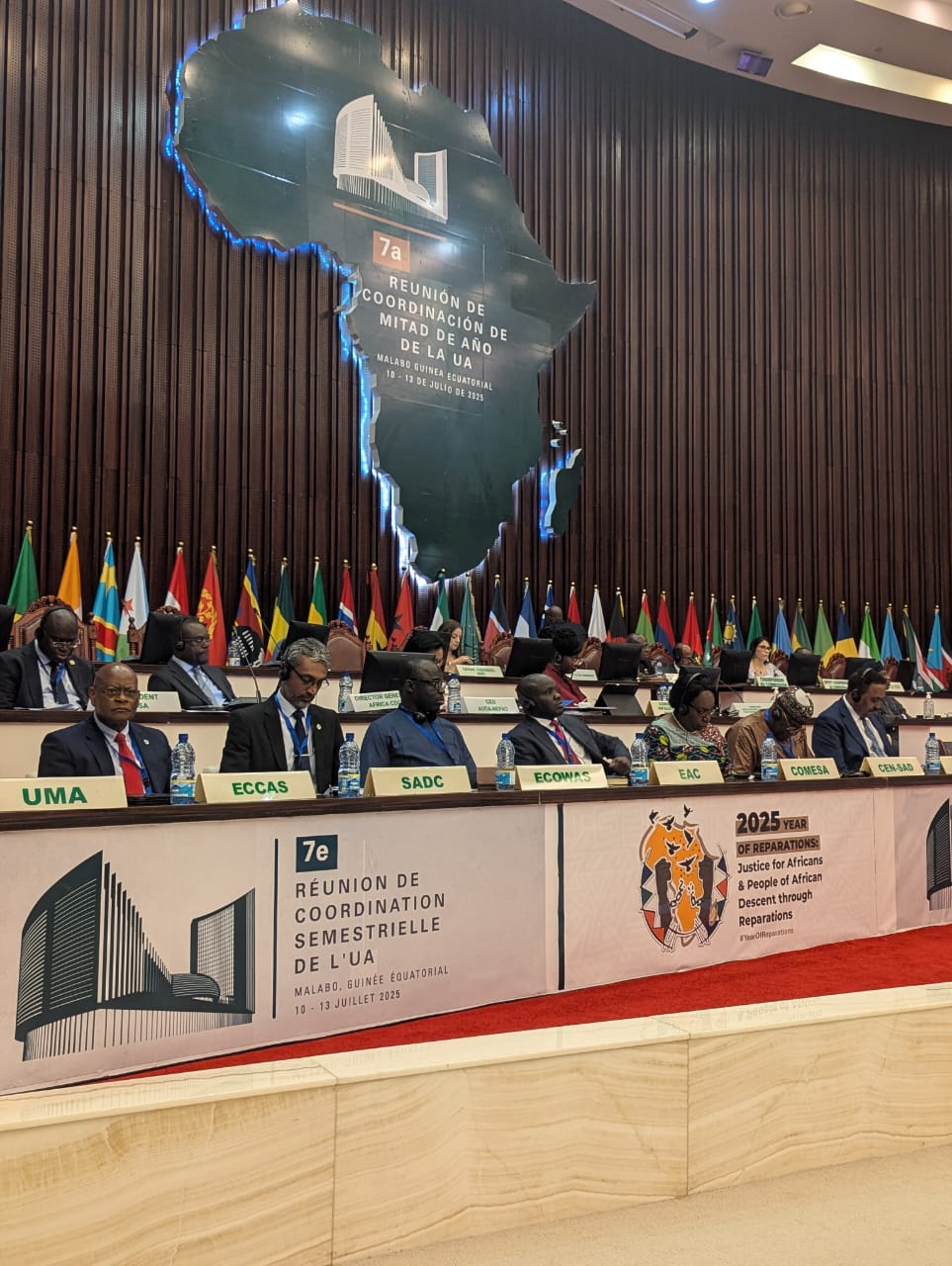African Union executive council opens high-stakes 47th session in Malabo

The African Union’s 47th Executive Council session officially opened on Thursday, July 10, in Malabo, Equatorial Guinea, setting the stage for critical deliberations ahead of the 7th Coordination Meeting between the AU, Regional Economic Communities (RECs), and Regional Mechanisms, which will convene under the leadership of African Heads of State and Government on July 12.
The session brings together foreign ministers from across the continent, including Chad’s Minister of State and Minister of Foreign Affairs, African Integration, and Chadians Abroad, Dr. Abdoulaye Sabre Fadoul.
He is joined by Chad’s Ambassador to Ethiopia and Permanent Representative to the African Union, Mahamat Ali Hassan, alongside other senior officials.
With a full agenda, ministers are reviewing a series of high-level reports and proposals that touch on the AU’s most pressing institutional, financial, and strategic challenges.
Key items include outcomes from the 50th Ordinary Session of the Permanent Representatives Committee (PRC), updates from various ministerial and financial committees, and the evaluation of African candidatures to global institutions.
The Council will also oversee elections and appointments to AU organs — a process closely watched for its implications on governance and continental unity.
In his opening address, Chairperson of the African Union Commission, Mohamed Ali Youssouf, called for deeper political will and greater cohesion among member states.
“The continent continues to face multiple challenges, particularly in security and development.
These cannot be overcome without enhanced commitment and solidarity from all,” he stated.
One of the most critical issues raised was the AU’s budgetary strain.
Youssouf warned that declining financial contributions from member states threaten to derail the AU’s strategic agenda.
“The gradual reduction in funding is undermining the implementation of our strategic actions,” he said, announcing that the program budget, currently at 4% for 2025, is projected to rise to 12% in 2026.
As plenary discussions resume on Friday, the 47th session is expected to build momentum for Saturday’s coordination summit, where Heads of State will discuss the broader political, economic, and security coordination framework for Africa’s integration agenda under Agenda 2063.
With funding gaps, governance reforms, and continental leadership on the line, this year’s Executive Council meeting could shape the future course of the African Union for years to come.
About The Author
dailymailafric
I am an avid African news observer, and an active member of Daily Mail Africa.
I’m Passionate about staying informed on diverse topics across the continent,
I actively contribute to publishing on political, economic and cultural developments in Africa.



